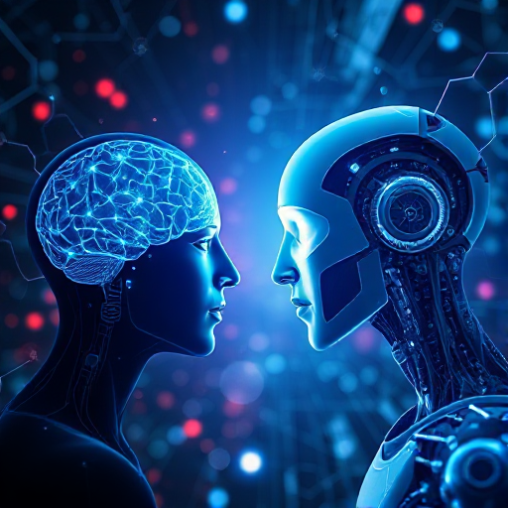Human Intelligence vs AI: Designing the Future to Challenge AI
Do we truly want artificial intelligence to take over our lives and gradually control the decisions that define us? Or can we reverse this trend before it becomes irreversible? As AI continues to automate jobs, influence economies, and even shape human interactions, the pressing challenge is not simply how to adopt AI — but how to design systems that keep human intelligence (HI) at the core.
By developing systems that are complex, dynamic, and unpredictable for AI, these experts can ensure human creativity, intuition, and ethical decision-making remain central to innovation. The open-source community plays a vital role in this movement, fostering collaboration and sharing knowledge to design technologies that challenge AI’s capabilities. Together, we can shape a future where humans, not machines, drive technological progress.
The Power of the Open‑Source Community
The answer lies in empowering the open‑source community and cultivating a new generation of technology experts committed to preserving human creativity, intuition, and ethics. Unlike proprietary systems controlled by a few corporations, open‑source development allows diverse thinkers to collaborate, share, and question. This collective approach ensures innovation isn’t monopolized by machines or limited by narrow corporate goals.
Why Human Intelligence Matters
Human intelligence offers qualities AI cannot replicate: empathy, moral reasoning, and the ability to think outside strict algorithms. To maintain this edge, we must build technologies that are complex, dynamic, and even unpredictable for AI. Such systems challenge the boundaries of machine learning and highlight the unique contributions of human thought.
Moreover, open collaboration can create checks and balances for AI’s growing influence. By designing tools that emphasize transparency, adaptability, and human oversight, we ensure that technology remains an extension of human capability rather than a replacement for it.
The future doesn’t need to be a competition where humans lose ground to machines. Instead, it can be a partnership where AI handles repetitive tasks while humans lead with creativity, vision, and responsibility. To achieve this, the open‑source community must continue to push boundaries, inspire innovation, and keep human values at the forefront.
Together, we can shape a world where humans — not algorithms — drive progress, ensuring that the rise of AI strengthens rather than diminishes human potential.


